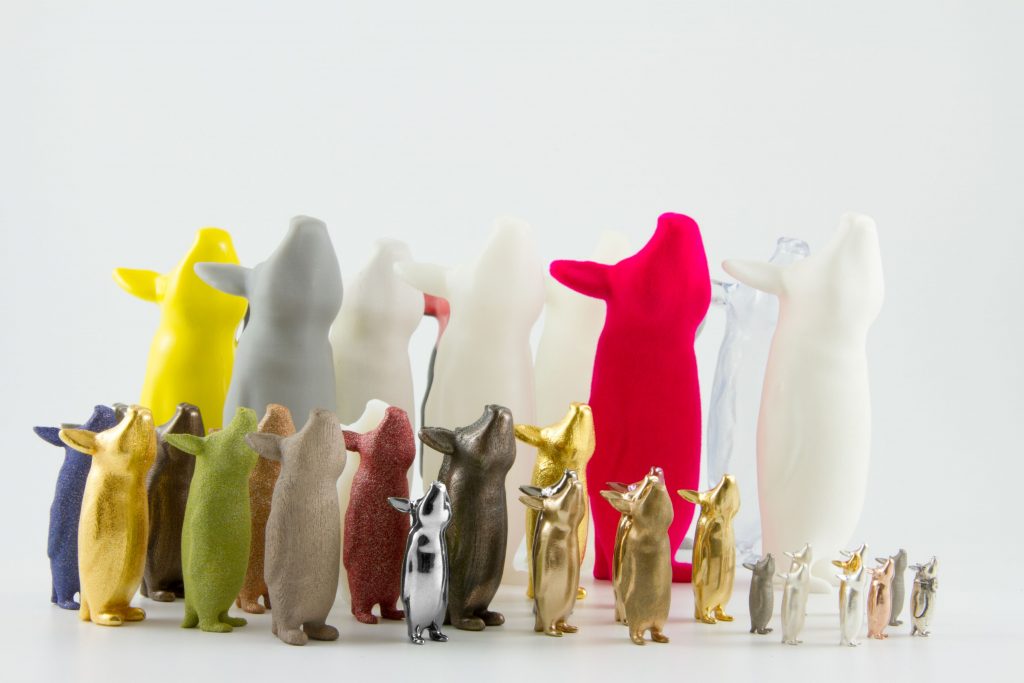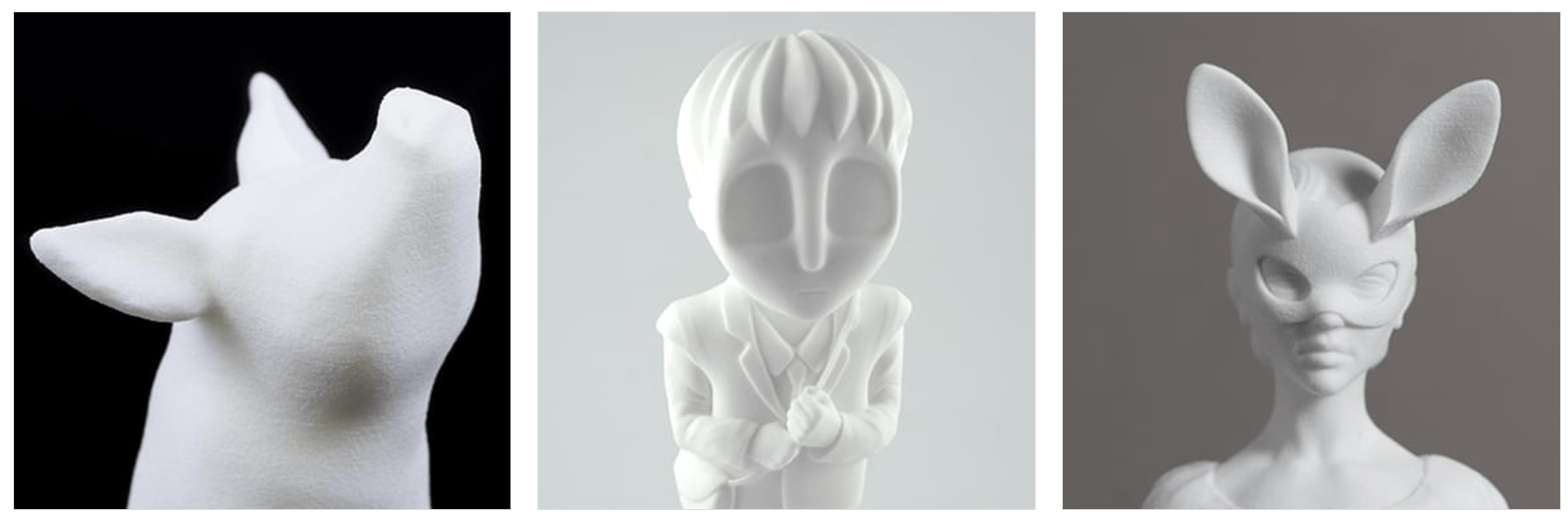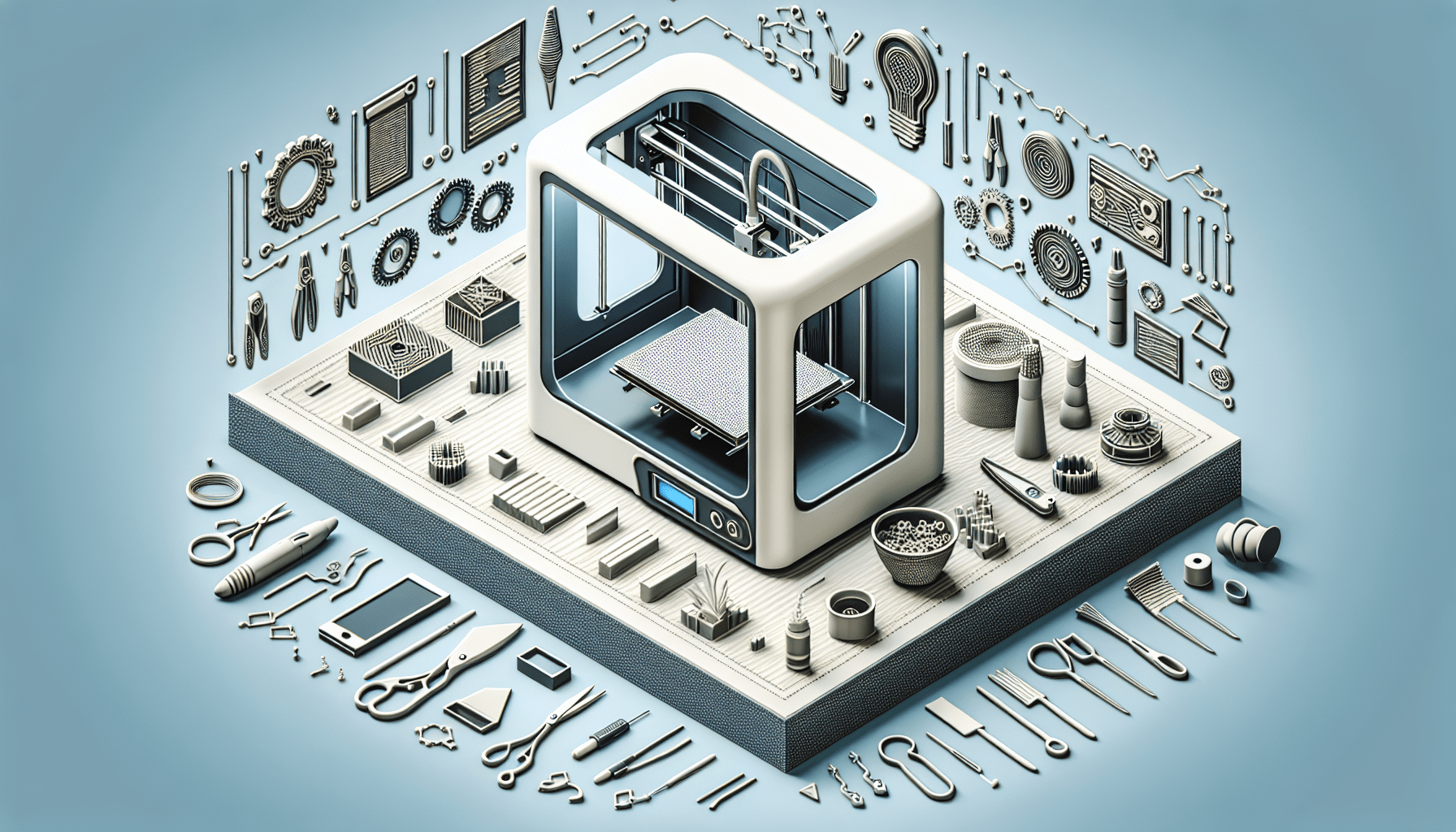Creality 3D Printer, K1 SE Fully Assembled Auto Leveling FDM 3D Printers for Kids and Beginners, 600mm/s Max High-Speed Printing, Core XY All Metal Structure, Larger Print Size 250x220x220mm
$299.00 (as of May 30, 2025 19:11 GMT +00:00 - More infoProduct prices and availability are accurate as of the date/time indicated and are subject to change. Any price and availability information displayed on [relevant Amazon Site(s), as applicable] at the time of purchase will apply to the purchase of this product.)In the world of 3D printing, there are countless materials and finishes to choose from, making it challenging to find the right one. Fortunately, in this comprehensive overview, we will explore 100 different materials and finishes to help you navigate through the options. We have categorized them into three sections: plastic 3D printing materials, metal 3D printing materials, and 3D printing in other materials. In this article, we will focus on plastic 3D printing materials. One popular choice in this category is Polyamide, a strong and flexible nylon plastic that is commonly used for interlocking and moving parts. We will also discuss various finishes available for Polyamide, including natural, dyed, satin, polished, and spray paint. Additionally, we will explore other plastic options such as Alumide, a mix of polyamide with aluminum particles, and Polypropylene, which has properties similar to injection-molded polypropylene. Lastly, we will touch on resin-based materials, including Gray Resin, High-Detail Resin, Mammoth Resin, Standard Resin, and Transparent Resin. With this comprehensive overview, you will gain a better understanding of the different materials and finishes available in the world of 3D printing.
Plastic 3D printing materials
In the world of 3D printing, plastic materials are widely used due to their versatility and affordability. There are several types of plastic materials that can be used for 3D printing, each with its own unique properties and finishes. In this article, we will explore the different types of plastic 3D printing materials available and the finishes that can be achieved with each.
Polyamide (SLS)
Polyamide, also known as nylon, is one of the most popular choices for plastic 3D printing. It is a strong and flexible material that can be used for a wide range of applications. Polyamide is often used in selective laser sintering (SLS) 3D printers, where powdered polyamide is melted and fused together layer by layer to create a solid object.
Polyamide (SLS) has a natural white color, but it can also be dyed in several different colors. The natural finish of polyamide has a somewhat rough surface texture, but it can be smoothed out through post-processing techniques. Some of the available finishes for polyamide (SLS) include natural, dyed, satin, polished, and spray paint.
Polyamide (MJF)
Polyamide (MJF) is another type of polyamide material used for 3D printing. It stands for Multi Jet Fusion, a printing technology that uses a liquid binding agent to fuse layers of powdered polyamide together. The result is a strong and high-resolution object.
Polyamide (MJF) has a natural finish that is similar to polyamide (SLS). It can also be dyed and polished to achieve different surface qualities. The dyed finish gives the object a vibrant color, while the polished finish provides a smooth and glossy appearance.

$30 off $400+ Anycubic Products with code AC30OFF
Alumide
Alumide is a unique material that combines polyamide powder with aluminum particles. This combination results in a material that is both lightweight and strong. Alumide is often used for functional prototypes and small-scale production parts.
Alumide has a natural finish that showcases its metallic properties. It can also be dyed in different colors to achieve a more vibrant appearance.
Polypropylene
Polypropylene is a popular choice for 3D printing because it has properties similar to injection-molded polypropylene. It has a sandy and granular look with a translucent off-white color. Polypropylene is known for its flexibility and durability, making it suitable for a wide range of applications.

Gray Resin
Resin-based 3D printing materials are known for their high level of detail and smooth surface finishes. Gray resin is a type of resin that offers a balance between affordability and quality. It is often used for functional prototypes and models.
Gray resin has a natural, basic finish that showcases the intricate details of the 3D printed object. It can also be post-processed to remove support marks or spray painted to achieve different colors and effects.
High-Detail Resin
As the name suggests, high-detail resin is a type of resin that allows for extremely detailed 3D prints. It is often used for jewelry, figurines, and other small-scale objects that require intricate details.
High-detail resin has a natural finish that highlights the fine details of the 3D printed object.

Mammoth Resin
Mammoth resin is a type of resin that enables the printing of large-scale objects. It is ideal for architectural models, prototypes, and other large-format prints.
Mammoth resin can be used with a natural finish, showcasing the size and details of the 3D printed object. It can also be spray painted to achieve different colors and effects.
Standard Resin
Standard resin is a versatile material that offers a balance between quality and affordability. It is often used for a wide range of applications, including functional prototypes, models, and production parts.
Standard resin can be used with a natural, basic finish or with support structures still attached. The support structures can be removed manually through post-processing techniques.
In conclusion, plastic 3D printing materials offer a wide range of options for achieving different finishes and properties. From strong and flexible polyamide to lightweight alumide and translucent polypropylene, there is a plastic material suitable for every project. The different finishes, such as natural, dyed, polished, and spray painted, allow for customization and creativity in the final appearance of the 3D printed objects. With the variety of options available, designers and engineers can find the perfect plastic material and finish for their specific needs.
Buy Photon Mono M5 Get Free 1KG Resin








